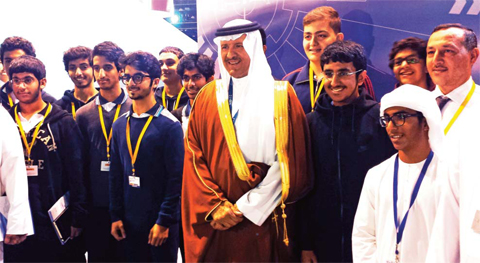BAGHDAD: Iraqis voted Monday in the first provincial council elections held in a decade, which were expected to strengthen the dominance of pro-Iranian Shiite Muslim groups. The vote comes at a time of widespread political apathy and disillusionment in the oil-rich country of 43 million that is still recovering from years of war and plagued by corruption.
Turnout at noon had reached just 17 percent, said election commission official Omar Ahmed, who urged voters to come out and “contribute to the success of the electoral process”. The vote is seen as a key test for Prime Minister Mohammed Shia al-Sudani — who rose to power just over a year ago backed by pro-Tehran parties — ahead of a general election due in 2025.
The provincial councils set up after the 2003 US-led invasion that toppled dictator Saddam Hussein choose provincial governors and manage budgets for health, transport and education. Critics see them as hotbeds of corruption and clientelism, and they were abolished in late 2019 after mass anti-government protests before being re-established under Sudani. Influential Shiite cleric and political kingmaker Moqtada Sadr, a one-time militia leader who has launched anti-government protests in the past, has boycotted the vote.

Vote on ‘economic populism’
Sudani, after casting his ballot in Baghdad, hailed the councils as “a pillar of the executive” which help the government implement policies. The premier has pledged to boost public services and rebuild infrastructure ravaged by decades of conflict and turmoil.
He urged Iraqis to elect “honest” representatives. Some 17 million people are eligible to vote, with 6,000 candidates vying for just 285 council seats. But many voters in the young democracy voiced little interest. “What use are these elections to us?” said a Baghdad taxi driver who gave his name only as Abu Ali, 45. “The years pass, elections come around again, the candidates change, and our situation stays the same.”
Civil servant Amin Saleh, 63, voiced greater enthusiasm as he cast his ballot in the capital. “If I don’t come and vote, and nobody else does either, there’ll be chaos,” he told AFP. “We need someone to represent us. How do you achieve that except by voting?”
In the end, turnout will be “the ultimate gauge of satisfaction,” Renad Mansour, a senior research fellow at think tank Chatham House, told AFP. It will show “whether the Sudani government’s economic populism — the policy of giving out (public sector) jobs — can be successful and can capture the young population”.
Pro-Iran groups expect boost
Elections were held in 15 provinces, but not in the three which make up an autonomous Kurdish region in the north. Voting was held amid tight security, and polls were due to close at 6:00 pm (15:00 GMT), with preliminary results expected 24 hours later, the electoral commission said.
One quarter of candidates are women under a system that also reserves quotas for the Christian, Yazidi and Sabian minorities. The vote was expected to boost the ruling Iran-aligned bloc called the Coordination Framework coalition.
It brings together Shiite Islamist parties with factions of the Hashed al-Shaabi, a network of former paramilitary units that have been integrated into the regular security forces. Mansour said some alliance heavyweights hope the elections will “prove they have a social base and that they are popular” following disappointing results in 2021 national elections.
Tensions around the Zionist war in Gaza were not seen as a major factor in the elections, despite recent drone attacks against US-led coalition troops based in Iraq. No security breaches were reported during the morning, Interior Minister Abdel Amir al-Chammari told reporters. Observers kept a close eye on the oil-rich northern province of Kirkuk where historic rivalries could resurface between parties representing its Arab, Kurdish and Turkmen communities. — AFP











